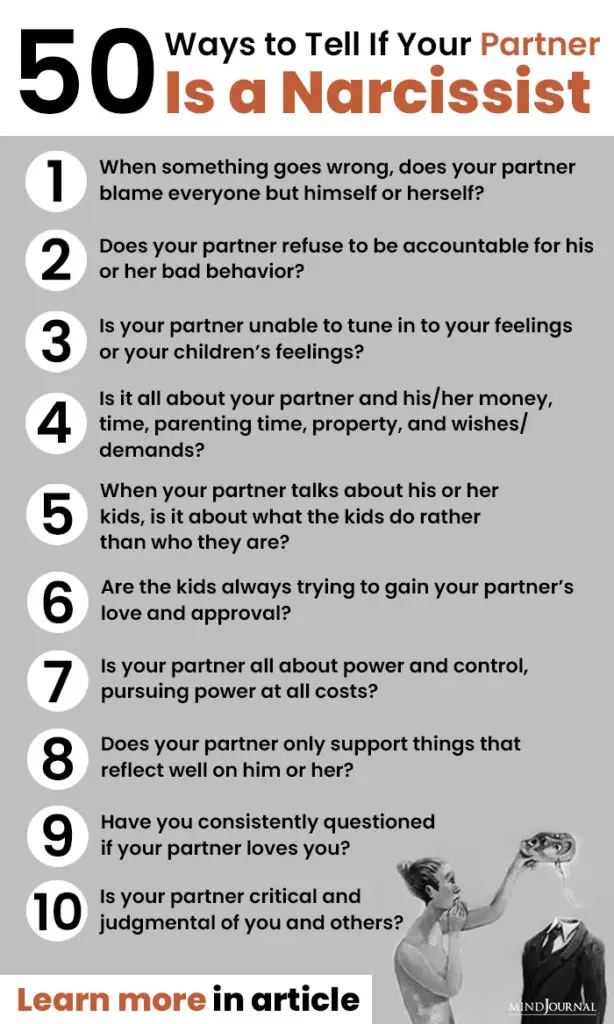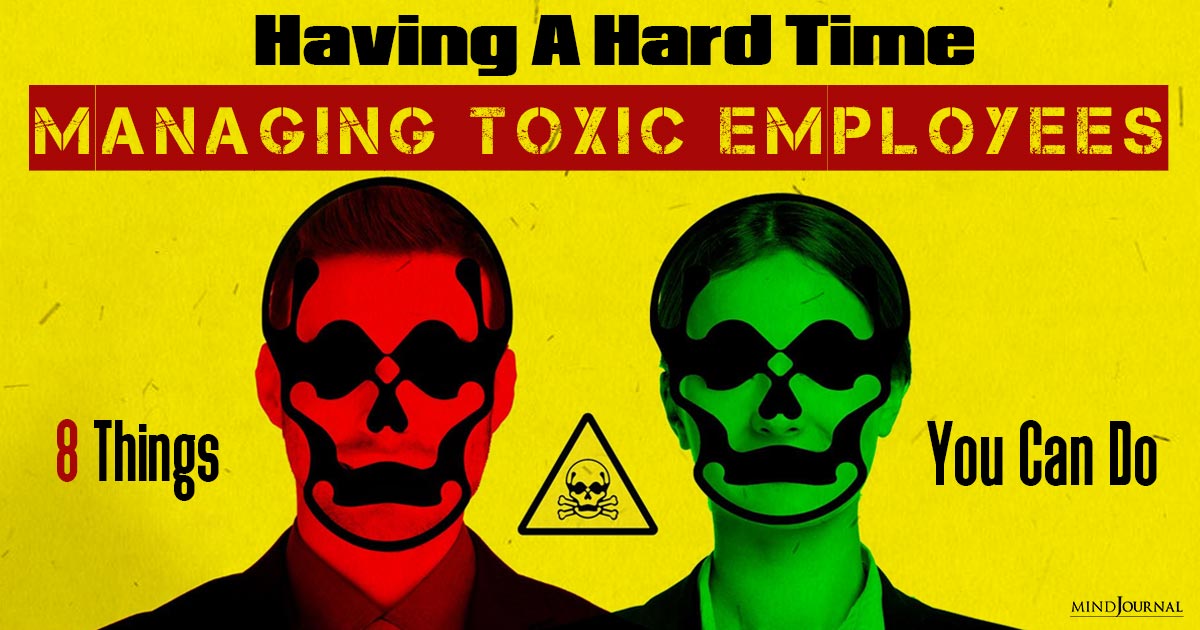Is your partner a narcissist? Dive into this eye-opening guide and uncover the 50 telltale signs that can help you find the answer you’ve been seeking
The label narcissist is used loosely these days, typically to indicate anyone who is vain and selfish, but the true personality disorder and its traits run much deeper, and carry long-term debilitating effects for those involved with such people.
If you were raised by a narcissistic parent or if your partner is a narcissist, you will likely feel more like an object to be used and manipulated to meet the narcissistic partner’s goals or needs.
You eventually realize your partner does not see the real you. It is a heart-breaking discovery to realize you have been conned or duped by someone you trusted and loved.
Below I’m offering you a checklist to determine if your relationship carries these devastating traits.
Remember: Narcissism is a spectrum disorder; someone with a high level or a number of these traits can be a more damaging influence on you, and your children. The more traits, the closer to a full-blown personality disorder.
Read: 11 Signs It’s An Emotionally Abusive Relationship And You Might Not Even Realize
This checklist is copyrighted and comes directly from my new book to be released on February 10, 2015: Will I Ever Be Free of You? How to Navigate a High-Conflict Divorce from a Narcissist, and Heal Your Family.
Is Your Partner a Narcissist? 50 Signs Your Partner Is A Narcissist

1. When something goes wrong, does your partner blame everyone but himself or herself?
2. Does your partner refuse to be accountable for his or her bad behavior? (For example, “You made me so mad that I couldn’t help . . .”)
3. Does your partner believe he or she is always right?
4. Is your partner unable to tune in to your feelings or your children’s feelings?
5. Does your partner seem more concerned about how your behavior or your children’s behavior reflects on him or her than on understanding and accepting who you and the kids are as people?
6. Does your partner seem to be out of touch with his or her own feelings or seem to deny them?
7. Does your partner carry grudges against you and others?
8. Is it all about your partner and his/her money, time, parenting time, property, and wishes/demands?
9. Does your partner seem unwilling to listen to you and to hear your concerns?
10. Is your partner constantly telling you what to do?
11. Does your partner make you feel “not good enough”? Have your partner’s constant put-downs caused you to internalize this message?
12. Does your partner never ask about you, your day, or your feelings, even in passing?
13. Does your partner need to go on and on about how great he or she is and how pathetic you are?
14. Does your partner lie?
15. Does your partner manipulate?
16. Does your partner tell different people different stories about the same event, spinning the story so that he or she looks good?
Read: We Often Stay In Abusive Relationships Because of Trauma Bonding
17. When your partner talks about his or her kids, is it about what the kids do rather than who they are?
18. Are the children uncomfortable with your partner, love your partner, but at the same time are reluctant to spend time with him or her?
19. Have you come to realize that the kids protect themselves by not sharing their feelings with your partner?
20. Does your partner mistrust everyone?
21. Are the kids always trying to gain your partner’s love and approval?
22. Has your partner spent minimal time with the children?
23. Does your partner typically skip the children’s events if he or she does not have an interest in that particular activity or does not value it?
24. Does your partner push the children to be involved in activities that your partner likes or values and discourage or forbid them from pursuing activities that your partner does not value?
25. Have others in your life said that something is different or strange about your partner?
26. Does your partner take advantage of other people?
27. Is your partner all about power and control, pursuing power at all costs?
28. Is your partner all about image and how things look to others?
29. Does your partner seem to have no value system, no fixed idea of right and wrong for his or her behavior?
30. After the divorce, does your partner still want to exploit you? Or has your partner never calmed down?
31. When you try to discuss your life issues with your partner, does your partner change the subject so that you end up talking about your partner’s issues?
Read: 6 Common Signs You’re In An Abusive Relationship That Are Often Ignored
32. When you describe your feelings, does your partner try to top your feelings with his or her own stories?
33. Does your partner act jealous of you?
34. Does your partner lack empathy?
35. Does your partner only support things that reflect well on him or her?
36. Have you consistently felt a lack of emotional closeness with your partner?
37. Have you consistently questioned if your partner loves you?
38. Does your partner do considerate things for you only when others are around to witness that good behavior?
39. When something difficult happens in your life (for instance, an accident, illness, a divorce in your family or circle of friends), does your partner react with immediate concern about how it will affect him or her rather than with concern for you?
40. Is your partner overly conscious of what others think?
41. Do you feel used by your partner?
42. Do you feel responsible for your partner’s ailments or sicknesses?
43. Do you feel that your partner does not accept you?
44. Is your partner critical and judgmental of you and others?
Read: 18 Relationship Red Flags You Should Never Ignore
45. Do you feel that your partner does not know and value the real you and does not want to know the real you?
46. Does your partner act as if the world should revolve around him or her?
47. Does your partner appear phony to you?
48. Does your partner swing from grandiosity to a depressed mood?
49. Does your partner try to compete with you?
50. Does your partner always have to have things his or her way?
What do you think? Is your partner a narcissist?
As one of my clients commented, “If you have ever awakened at 3 a.m. with heart-pounding and a vivid certainty that you must end the relationship with the person sleeping next to you, but the next day continued on as if such middle-of-the-night thoughts were just a bad dream, then you may need some help with the struggle of what to do next.
The surreal Alice in Wonderland quality of living with a narcissist is not something we are born knowing how to deal with or even understand.”
Of course, there is hope and healing and if you determine you are struggling with an emotionally abusive relationship I encourage you to reach out, get help, and learn as much as you can about this insidious disorder. You deserve to be loved and cherished, as do your children.
From the book, Will I Ever Be Free of You? How to Navigate a High-Conflict Divorce from a Narcissist, and Heal Your Family.
Written By Dr. Karyl McBride, Ph.D., L.M.F.T.
Printed with Permission
Originally appeared on Psychology Today











Leave a Reply
You must be logged in to post a comment.